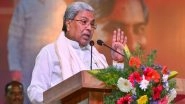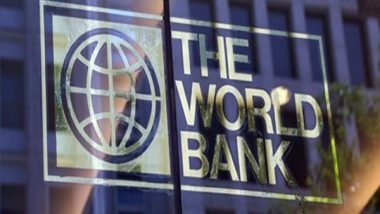Beijing [China], September 29 (ANI): The World Bank on Tuesday slashed China's 2022 economic growth projection to 2.8 per cent, pointing to Beijing's "zero-COVID" policy and real estate crisis.
Notably, the World Bank forecasted 5 per cent economic growth in April, The Strait Times reported.
In the October update of its report on the economic prospects for East Asia and the Pacific (EAP), the World Bank project 2.8 per cent growth, which is the lowest among international institutions.
It is pertinent to mention that 2022 will be the first year China's growth will fall below that of the region since 1990, according to The Strait times citing report.
Given that China accounts for 86 per cent of the GDP of the 23 countries in the EAP, its slowdown will drag overall growth down to 3.2 per cent in 2022 from 7.2 per cent in 2021. Excluding China, the World Bank forecasts that growth in the EAP will more than double in 2022 to 5.3 per cent from 2.6 per cent in 2021.
In the presentation of the report, the Bank's chief economist for East Asia and the Pacific Aaditya Mattoo highlighted three main areas of concern for growth in the EAP.
According to Mattoo, the global economic slowdown, which is likely to depress demand for the region's exports of manufactured goods and commodities; interest rate hikes by the US Federal Reserve and other central banks, have led to capital outflows, currency depreciation and higher debt-servicing burdens; and measures to control inflation, such as price controls and subsidies, notably in Malaysia and Indonesia; are the main concern.
Such measures distort price signals, provide support not just to poor people but also to the wealthy, and draw resources away from spending in other areas.
During the presentation, Mattoo pointed out that China's growth is weighed down by its Zero-COVID policy and the real estate sector crisis, reported The Strait Times.
These short-term irritants need to be addressed to unleash the longer-term potential of the Chinese economy," he said.
According to Dr Mattoo, the global economic slowdown will have a disproportionate impact on the region's growth prospects.
Moreover, interest rate hikes by the US Federal Reserve and other central banks as well as depreciating currencies will impact both debt servicing burdens and inflation in the EAP.
The World Bank estimates that recent price and interest-rate shocks could reduce growth in the region by 0.4 percentage points.
Mattoo said that most countries in the region have coped fairly well with the rate hikes because much of their debt is domestic and the proportion of variable interest rate debt in their foreign obligations is low, according to The Strait Times.
However, given that currencies across the region have fallen against the US dollar, all countries are affected to some degree by inflation because of higher import costs - mainly food and fuel, which are priced in US dollars - as well as higher debt service burdens, which will translate into less spending on infrastructure, health and education. (ANI)
(The above story is verified and authored by ANI staff, ANI is South Asia's leading multimedia news agency with over 100 bureaus in India, South Asia and across the globe. ANI brings the latest news on Politics and Current Affairs in India & around the World, Sports, Health, Fitness, Entertainment, & News. The views appearing in the above post do not reflect the opinions of LatestLY)













 Quickly
Quickly


